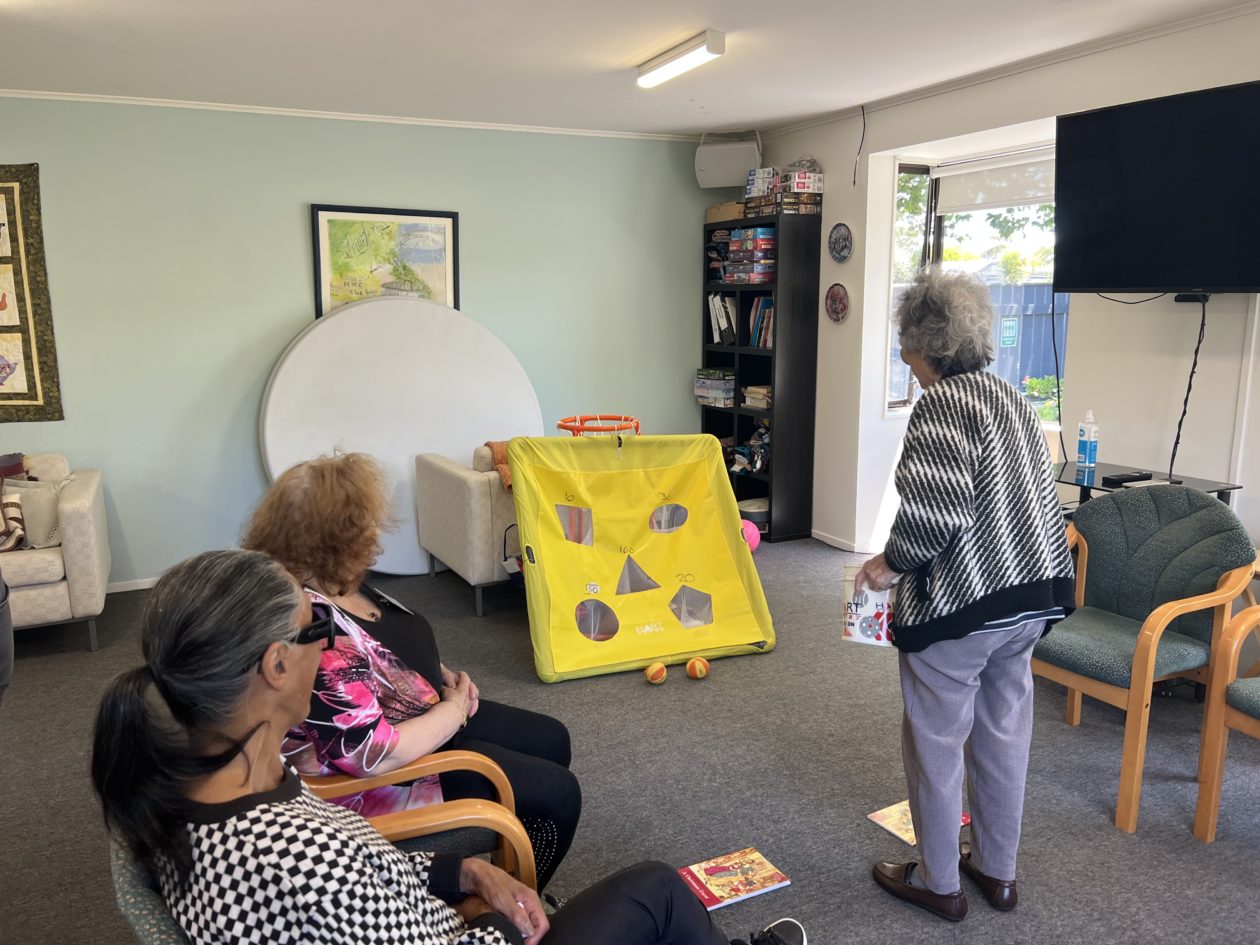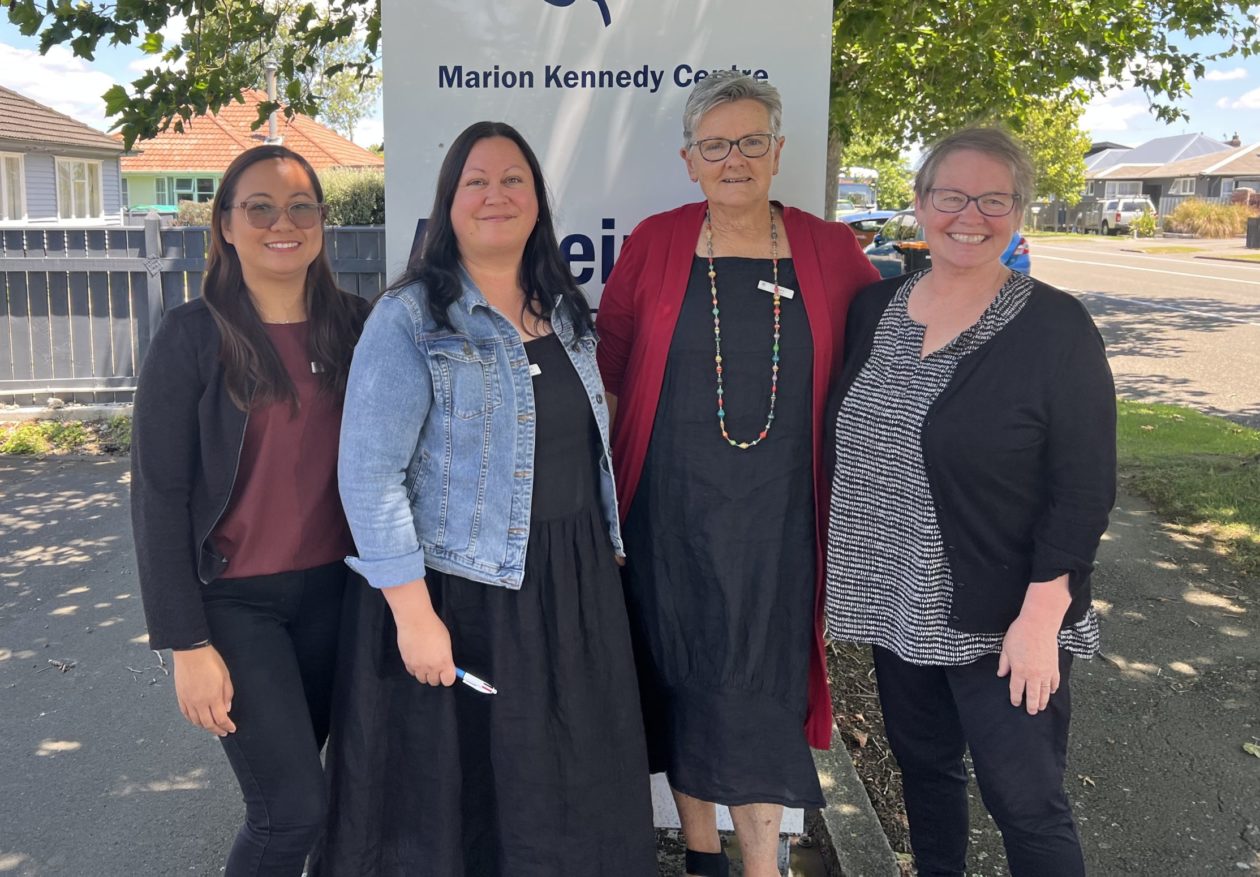Day programme’s a lifeline for local whānau with dementia mate wareware

Day programmes – like those offered at Alzheimers Manawatu – make a ‘huge difference’ for people living with dementia mate wareware, according to the people who attend.
The service has four clubs around the region (including the Marion Kennedy Centre (MKC) in Palmerston North) which are attended by about 200 people (pictured above).
Each day is different but follows a similar structure. Embodied by a different theme each day, people arrive for a morning tea, followed by a range of Cognitive Stimulation Therapy (CST) activities, gentle exercises, lunch and then more activities in the afternoon.
At the Marion Kennedy Centre, some of the people who attend the day programme shared the difference attending – from once a week, up to three days – makes in their day-to-day life. One person has been attending for the last eight years.
We asked them a few questions about the programme and the impact it has on their life and here’s what they had to say.
What’s the best thing about coming to the day programme?
“Waking my brain up is really fantastic. If I wasn’t here I’d just be at home watching Netflix.”
“Meeting new people, some with the same condition.”
“You can get knowledge of what’s going on through your head and you can figure it out.”
“Being here is the best thing for me, at least it’s given me some sanity.”
“It doesn’t matter if you muck things up, as long as you give things a go.”
“It’s something I never would’ve thought about before, but it makes a huge difference.”
The attendees have varying levels of independence and a few of them still drive. However, the diagnosis came as a shock to many.
“My first reaction is that I was really frightened. I worked in that field for about 20 years – I knew what was coming up. Even now when I think about it too much… I don’t enjoy looking to the future, I’m still worried about it.”
“Most people, when you mention the word Alzheimers, they think you’re off your rocker.”
“It’s not the end of the world – I thought it was.”
And what were the final thoughts on the day programme?
“I’d like more days, thank you very much – two is not enough. I’m panting like a dog to get here.”
“This is where I’ve been coming, the best thing that’s happened.”
“I love it. It keeps my mind ticking over and keeps me active.”
“It’s the best place you could be.”
There is one staff member for each six people who attend, and they’re all Diversional Therapists, or studying towards the qualification.
People may join for the whole or part of the day, and which group people are in depends on their interests and background, and which stage of the journey they are in. People also need to be physically independent.
Manager Tracy Lynn often invites people who are making referrals or funding the different services to come in to see firsthand the impact the service has.
“The people who come here think it’s amazing and they often want to stay. There are some people who don’t know what we do at MKC – but it’s important that everyone and anyone can see what we do,” she says. “You can see the difference it makes.”
Some of the funding is provided by Health New Zealand, but like any local chartiable service, there is still plenty of work to do to make up the difference.
Despite Covid-19, the second self-funded building was finished in 2020 and a hearing loop was installed last year. Memory Cafes and carer support groups remain popular – with two men-only groups starting up.
Alongside the Dementia Advisors, Liam Walsh and Andrea Hodgetts, the Day Programme Co-ordinators are the glue that hold the service together. Barbie Knox, Rona Turqueza and Angie Bradshaw have the privilege of this role.
The team meticulously works through referrals and other paperwork to ensure people are in the best place for them, as well as working with whānau when any changes are noticed or needed.
“At the end of the day it’s fulfilling if you see them happy, and when they say thank you and it’s nice to see you again,” says Barbie.
“We have some amazing people. They’ve got some stories they can tell you.”
If you or anybody you know needs more support reach out to your local Alzheimers or dementia service.


